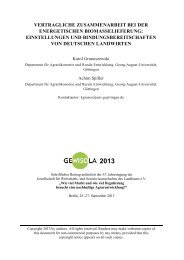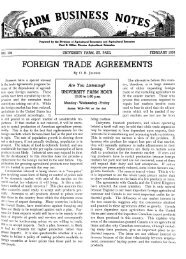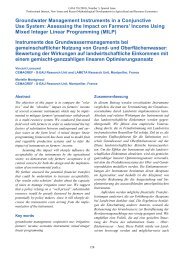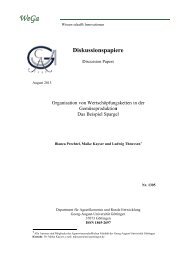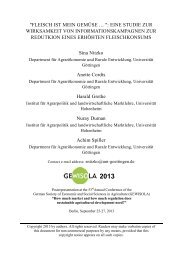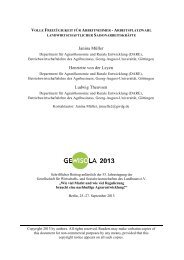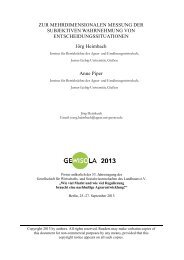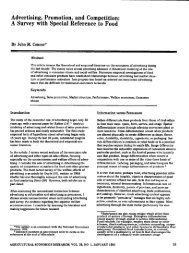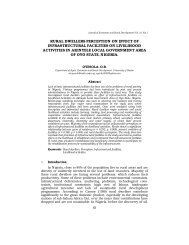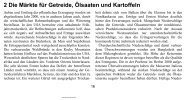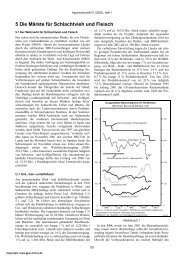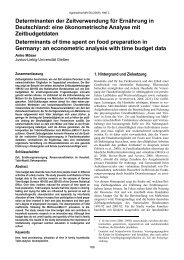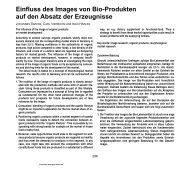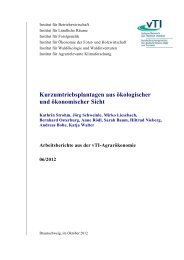District Institutes of Education and Training - Teacher Education
District Institutes of Education and Training - Teacher Education
District Institutes of Education and Training - Teacher Education
You also want an ePaper? Increase the reach of your titles
YUMPU automatically turns print PDFs into web optimized ePapers that Google loves.
<strong>District</strong> <strong>Institutes</strong> <strong>of</strong> <strong>Education</strong> <strong>and</strong> <strong>Training</strong>: A Comparative Study in Three Indian States<br />
Table 7.2: Reflection on teacher responses<br />
Issue raised by teachers<br />
Continuous turnover <strong>of</strong> schemes,<br />
yet a lack <strong>of</strong> evaluation <strong>of</strong> their<br />
success<br />
[in relation to lack <strong>of</strong> evaluation]<br />
Frequent mention (directly or<br />
indirectly) <strong>of</strong> the lack <strong>of</strong> DIET<br />
presence in the field<br />
High proportion <strong>of</strong> responses<br />
praising teaching by pictures –<br />
no reasons given<br />
Some teachers seek further<br />
simplification / reduction <strong>of</strong><br />
curriculum. Don’t say why.<br />
7.6 Role <strong>of</strong> the process helpers<br />
Corresponding prompts for action / reflection<br />
Is the case or is it a perception – if the latter, why might<br />
teachers think this? Where might continuities lie?<br />
How the DIET can assure teachers that these are bits <strong>of</strong><br />
change that fit together?<br />
How can we improve evaluation?<br />
a) why don’t we go to the field?<br />
b) do we know clearly what we should be doing if we<br />
do go?<br />
Why might this be? Could it be related to language<br />
problems in this tribal area? Think more about<br />
language problems – possibly more action research<br />
on this?<br />
What might be their their thinking? Further research by<br />
DIET to find out what Ts mean?<br />
<strong>Teacher</strong>s remarks about tribal children are <strong>of</strong>ten very<br />
negative – is this a cause for concern? What might<br />
we do about it?<br />
For the project team, supporting these processes was also a process <strong>of</strong><br />
learning, <strong>and</strong> learning in particular about what was required <strong>of</strong> the more<br />
research experienced colleagues who were providing a ‘scaffolding’ for<br />
the DIET colleagues. At each site the role <strong>of</strong> the research team always<br />
included:<br />
• Workshop inputs on action research as a concept <strong>and</strong> as a practice<br />
• Support in identifying with reasonable precision a researchable topic from the<br />
issues <strong>of</strong> concern <strong>and</strong> refining that to create a research question<br />
• Technical inputs on an appropriate methodology <strong>and</strong> methods for data<br />
generation around the proposed topics<br />
• Support in planning the conduct <strong>of</strong> research (e.g. time, logistics, roles <strong>and</strong><br />
responsibilities <strong>of</strong> personnel)<br />
• Ongoing mentoring visits for trouble-shooting / problem solving<br />
• Inputs on qualitative data analysis (DIETs tended to produce<br />
summative analyses rather than formative ones that could direct changes in<br />
practice)<br />
• Inputs on structuring <strong>and</strong> writing up a report / other means <strong>of</strong> dissemination<br />
• Inputs on relating action research findings to pr<strong>of</strong>essional practices <strong>and</strong><br />
designing the next phase <strong>of</strong> action.<br />
150 DFID



